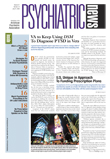The Healthcare Truth and Transparency Act aims to bar practitioners who have not graduated from medical school from misrepresenting themselves as physicians through advertising. Under the legislation, sponsored by Rep. John Sullivan (R-Okla.), nonphysician health professionals who continue to misrepresent themselves would face investigation and fines by the Federal Trade Commission.
The legislation is backed by APA as a member of the Coalition for Health Care Accountability, Responsibility, and Transparency (CHART), a physicians' advocacy group. The legislation is needed to help patients avoid“ substandard—and perhaps even dangerous—care” through misleading claims, said APA President-elect Carolyn Robinowitz, M.D., in a written statement.
“Information is power—the power to make better choices, to protect you and your family's safety, and to keep costs in check by getting you the care you need the first time,” she said.
The legislation aims to eliminate practices such as those of Louisiana psychologists, who in recent years won the right to prescribe psychoactive medications and to refer to themselves as “medical psychologists.” That title is misleading, APA maintains, because the law that gave Louisiana psychologists prescribing privileges placed their oversight with the nonphysician Louisiana State Board of Examiners of Psychologists rather than with a state medical board.
“The term `medical psychologist' encourages a patient to believe he or she is being seen by a medical doctor, when they're really being seen by someone without a medical degree. To me, that is deceptive,” Robinowitz said.
Sullivan said that the increasingly complex health care system has created a need to help consumers understand the differences in the kind of care they are offered.
The vast majority of Americans (90 percent) appear to be concerned about the qualifications of the professionals who provide their health care, according to a recent CHART survey. It found 86 percent support federal legislation that would make it easier for them to understand the qualifications of the health care professionals who treat them and their families.
The measure comes as changes in state laws in recent years related to practitioners' scope of practice have blurred the line between physicians, other clinicians who have some degree of medical training, and nonmedically trained practitioners. Adding to the confusion are nonphysician clinicians who use “physician” inaccurately or employ misleading uses of“ doctor.”
“While non-M.D. practitioners have an important role in the health care system, in fairness to the patients, the line must be clear as to the qualifications of the providers treating them,” Sullivan said. “As we focus on improving the delivery of health care in America, we must start by insisting on a level of transparency and truth in advertising that will empower patients to make an informed decision when it comes to their health care.”
In addition to APA, CHART members include the American Academy of Ophthalmology, American Academy of Otolaryngology–Head and Neck Surgery, American College of Surgeons, American Medical Association, and American Society of Anesthesiologists.
